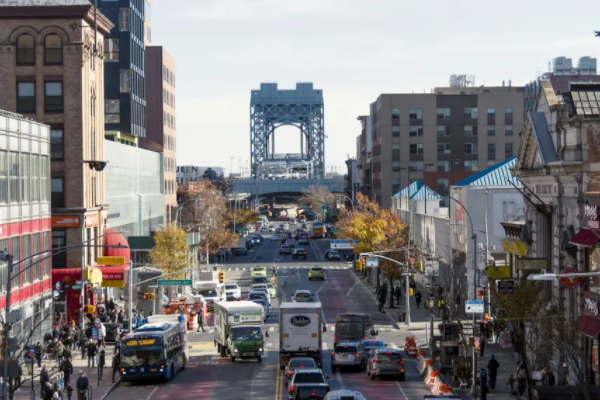 The city of New York is filled with small business owners struggling to survive in the face of regular existential threats. However, one community that has faced more adversity than most is Central Harlem. Despite its reputation for an active nightlife and cultural diversity, this neighborhood has been crippled by both the pandemic COVID-19 and the racial tensions that followed in its wake.
The city of New York is filled with small business owners struggling to survive in the face of regular existential threats. However, one community that has faced more adversity than most is Central Harlem. Despite its reputation for an active nightlife and cultural diversity, this neighborhood has been crippled by both the pandemic COVID-19 and the racial tensions that followed in its wake.
As a result, many businesses have temporarily or permanently terminated their operations. Meanwhile, others continue to struggle through these trying times using outdated methods that can no longer guarantee success in their current business climate. Many local citizens point out that greater economic empowerment for communities like Central Harlem cannot be achieved without first updating their approach to providing necessary services within the community itself.
“There are several things that small businesses could do better right now if they want to survive the current climate,” suggests Michael Jefferson of Harlem Common, a local business group. “The first is to prioritize hiring locally. There’s no way these companies can meet the immediate needs of their communities when they’re using staff from outside Central Harlem.”
Even more importantly, he believes that it’s vital for all small business owners to have contingency plans in place should disaster hit again. This includes having access to capital readily available so that they can weather any storm as easily as possible by simply enduring rather than thriving.
“These folks need short-term loans so that they have enough time and resources to back after another pandemic or large-scale economic meltdown,” he says. “The invisible hand of the market is no longer serving them.”
On its own, replacement staff isn’t enough to ensure success in today’s environment, however. As Jefferson points out, most small business owners are already forced to wear multiple hats to meet their basic operational expenses. However, with the additional responsibilities that come with being ready for virtually anything thrown into the mix, they have found themselves stretched thin and unable to keep up with other modernizing trends such as implementing manufacturing software into their business.
“Small business owners need support groups or advisory boards who can give them advice on how best to adapt,” suggests Dr. Judith Gray of Harlem Non-Profit Center. This should include help from local government agencies such as New York City’s Office of Small Business Services and private entities such as the Harlem Chamber of Commerce. “We’re going to need a lot more input from a lot more people if we want to bring these businesses into modern times.”
For this transformation to be successful, though, both local entrepreneurs and city agencies will have to overcome many obstacles in both traditional and non-traditional forms. For instance, Jefferson believes that those caring for injured survivors after the COVID outbreak should have been provided with financial aid via tax breaks or other funding sources rather than simply volunteered labor.
“I don’t think it’s fair for people who are already struggling financially to be charged with caring for their neighbors,” he says. “I hope that once the city gets their act together, they’ll begin offering tax breaks or other incentives to companies who are willing to take on that responsibility.”

There’s also the problem of not knowing how many businesses are still operating under traditional models simply because owners cannot make it to work. This might happen if employees themselves are injured or killed in the line of duty, or perhaps they will have died from COVID-19 itself. Local officials don’t know where these business owners might be hiding, making outreach difficult.
“We’re going through a time of great change right now,” says Gray. “But I believe that once we overcome our differences and focus on rebuilding Central Harlem into something better, then we can recover after everything that has happened here.”
As for those still struggling to stay afloat, the hope is that the city will offer them a way out by providing modernized training, mentorship, and support. “I don’t want to see any small business owners go under because they couldn’t adapt,” Jefferson says. “With a little bit of help from their communities, I’m confident that we can bring these businesses into the new millennium.”
Become a Harlem Insider!
By submitting this form, you are consenting to receive marketing emails from: Harlem World Magazine, 2521 1/2 west 42nd street, Los Angeles, CA, 90008, https://www.harlemworldmagazine.com. You can revoke your consent to receive emails at any time by using the SafeUnsubscribe® link, found at the bottom of every email. Emails are serviced by Constant Contact








